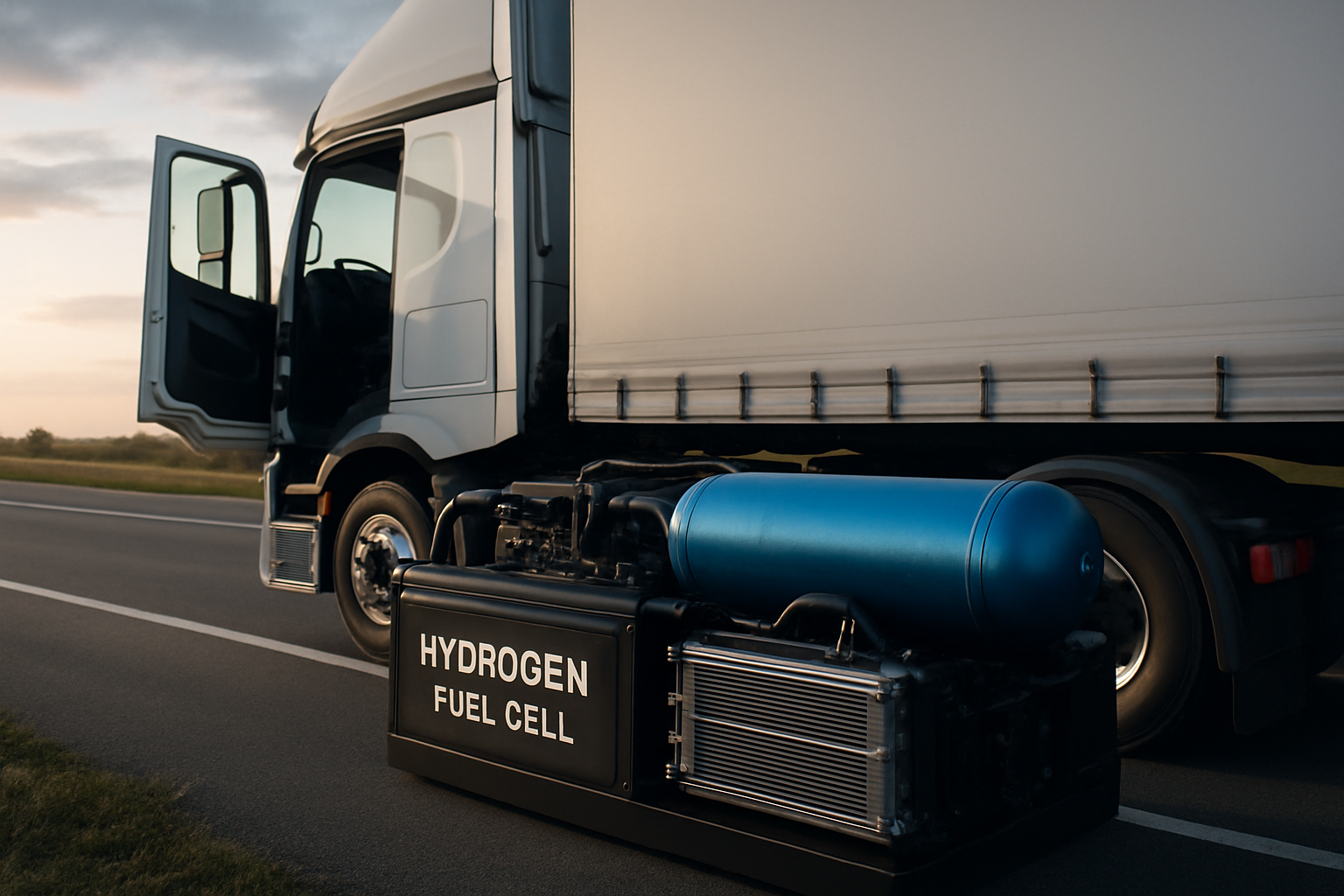Exploring the Untapped Potential of Hydrogen Fuel Cell Trucks
The roar of a diesel engine may soon be replaced by the quiet hum of hydrogen fuel cells in the trucking industry. As the automotive world grapples with sustainability, hydrogen fuel cell technology is emerging as a promising solution for long-haul transportation. This groundbreaking approach combines the range and quick refueling of conventional trucks with zero-emission benefits, potentially revolutionizing the way goods are transported across continents.

The system consists of several key components. The fuel cell stack is where the magic happens – layers of anode, cathode, and electrolyte membranes facilitate the reaction. Hydrogen is stored in high-pressure tanks, while air compressors supply oxygen. Power electronics convert the electricity produced to drive electric motors, propelling the vehicle forward.
Advantages Over Battery Electric Trucks
While battery electric vehicles have gained traction in passenger cars, they face significant challenges in the heavy-duty trucking sector. Hydrogen fuel cell trucks offer distinct advantages that make them particularly suited for long-haul transportation.
Firstly, refueling time is comparable to diesel trucks – a matter of minutes rather than hours required for battery recharging. This efficiency is crucial for maintaining tight delivery schedules and maximizing road time. Secondly, hydrogen fuel cells maintain consistent performance regardless of temperature, unlike batteries which can suffer in extreme conditions.
Perhaps most importantly, hydrogen fuel cell trucks boast a range similar to their diesel counterparts, often exceeding 500 miles on a single fill. This eliminates the range anxiety associated with battery electric vehicles and makes them viable for cross-country hauls without frequent stops.
Infrastructure Challenges and Solutions
The primary hurdle for widespread adoption of hydrogen fuel cell trucks is the lack of refueling infrastructure. Unlike the ubiquitous diesel stations, hydrogen refueling points are scarce. However, this chicken-and-egg problem is being addressed through collaborative efforts between governments, energy companies, and truck manufacturers.
Strategic placement of hydrogen stations along major trucking routes is key. By focusing on high-traffic corridors, a relatively small number of stations can support a large fleet of trucks. Additionally, on-site hydrogen production at distribution centers and truck stops is being explored, potentially creating a decentralized refueling network.
Innovations in hydrogen production are also driving down costs. While traditionally produced from natural gas, green hydrogen – made through electrolysis powered by renewable energy – is becoming increasingly viable. This approach not only reduces the carbon footprint of the fuel itself but also addresses concerns about the sustainability of hydrogen as an energy carrier.
Economic Viability and Total Cost of Ownership
The economics of hydrogen fuel cell trucks are rapidly improving. While upfront costs remain higher than diesel alternatives, the total cost of ownership (TCO) is becoming competitive. Factors contributing to this include lower fuel costs per mile, reduced maintenance due to fewer moving parts, and potential government incentives for zero-emission vehicles.
As production scales up, the cost of fuel cells and hydrogen storage systems is expected to decrease significantly. Major truck manufacturers are investing heavily in the technology, signaling confidence in its long-term viability. Fleet operators are beginning to see the potential for substantial savings over the lifecycle of their vehicles, particularly as diesel prices rise and emission regulations tighten.
Real-World Applications and Pilot Programs
Hydrogen fuel cell trucks are no longer confined to laboratory tests. Several major logistics companies and retailers have launched pilot programs to evaluate their performance in real-world conditions. These trials are providing valuable data on reliability, efficiency, and operational challenges.
In Europe, a consortium of companies is deploying hundreds of hydrogen trucks across multiple countries, creating a blueprint for large-scale adoption. In the United States, port operations are emerging as an ideal testing ground, with short-haul drayage trucks providing a controlled environment to refine the technology.
These pilot programs are not only proving the technical feasibility of hydrogen fuel cell trucks but also helping to identify and address operational hurdles. From driver training to maintenance protocols, the industry is rapidly developing the knowledge base required for widespread implementation.
The Road Ahead: Challenges and Opportunities
As with any emerging technology, challenges remain. The production and distribution of hydrogen need to be scaled up significantly to meet potential demand. Safety concerns, while largely addressed through rigorous engineering, still require public education and acceptance.
However, the potential benefits are immense. Beyond reducing greenhouse gas emissions, hydrogen fuel cell trucks could play a crucial role in energy independence and grid stability. By acting as mobile power plants, these vehicles could potentially feed electricity back into the grid during peak demand, creating a symbiotic relationship between transportation and energy infrastructure.
The trucking industry stands at a crossroads, with hydrogen fuel cell technology offering a compelling path forward. As the technology matures and infrastructure expands, we may be witnessing the early stages of a transformation that will reshape the way goods move across the globe. The quiet hum of hydrogen-powered trucks could soon become the soundtrack of a cleaner, more efficient future in long-haul transportation.






